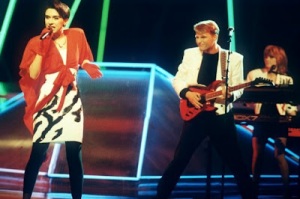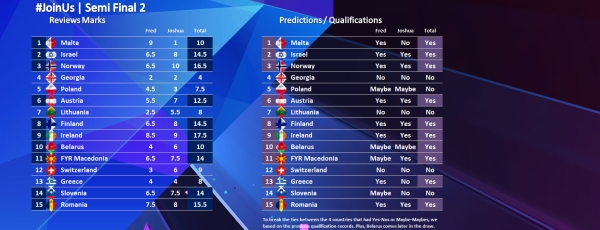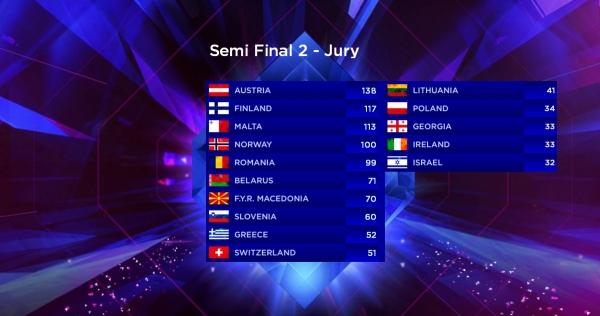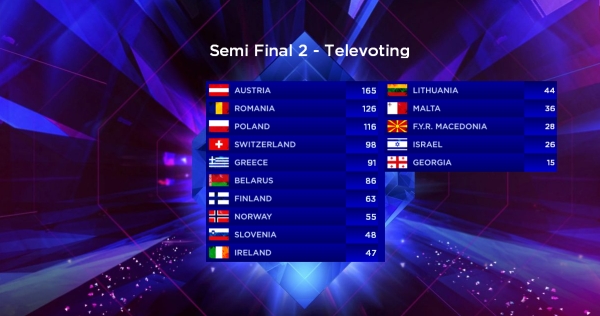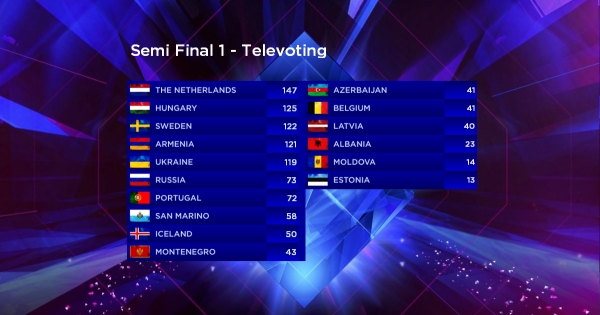by Joshua Reduch
The Eurovision Song Contest (or Grand Prix, as most Germans still call it) has had its high ups and deep lows among the german viewers in its almost 60 years old history.
In my next four articles I want to give you a closer look at the sometimes very difficult relationship between Germany and the Eurovision we all love.
Today, I will focus on the first 24 contests from 1956 to 1979:
After the Second World War, the destroyed Germany recovered itself with a successfull industry. The so called ”Wirtschaftswunder” (Economy miracle) has managed to make people more confident and happy after years full of war. But also the television broadcasters put up amazing shows to entertain. One of these was the ”Grand Prix Eurovision de la Chanson Europénne 1956” or for the ones who are not fluent in French: the first Eurovision Song Contest in 1956, held in the beautiful city of Lugano, Switzerland.

Freddy Quinn
The never seen before concept of countries sending their most talented singers who perform a song and hope to get the maximum amout of points from the juries was not an instant success.
At this time, Television was still something for upper class families and devices costed up to thousands of German Marks. A lot of money in these times.
The first german participants were Freddy Quinn and Walter A. Schwarz. While the latter did not become a star afterwards, Freddy Quinn managed to become one of the biggest singers of the 50’s and 60’s in Germany.
Germany did good in the further contests, but after none of the entries has become a big hit, that makes the Eurovision known among the german population.
That changed in 1962 when Conny Froboess sang her song „Zwei kleine Italiener“ in Luxemburg. The song about two hard-working Italian workers who miss the bright sun in their home country was an instant classic and the first ESC Song to achieve the No.1 spot on the german charts, although it only placed 6th.
So, after a No. 1 hit, Germany should have got some better placings in Eurovision? Well, unfortuneately they did not. In 1964 and 1965 Heidi Brühl and Ulla Wiesner even placed last with ”zero points”. After these failures, german Broadcaster ARD and its flagship Das Erste decided to change their selcetion procedure and selceted their acts internally. This didn’t make things better with the exception of 1968 when the beautiful norwegian Wencke Myhre placed 6th.

Katja Ebstein
But finally in 1970, a red-haired hippy girl entered the stage and sang ”Wunder gibt es immer wieder“ (Miracles keep on happening again and again). I’m talking about the wonderfull Katja Ebstein. She was the first act for Germany who placed in the Top 3, which wasn’t really hard that year, because only twelve countries competed. After the 1970 contest, she released English, Spanish, Italian and even Japanese versions of ”Wunder gibt es immer wieder”.
The broadcaster was so satisfied about her performance that they asked her to do it again in 1971. In a national final she sang six songs and again she placed third at Eurovision with ”Diese Welt” (This World). Just a few years later, she achived her biggest result in Eurovision, but I will talk about that in the next article.
Most Germans thought that the streak of great placings has now come to an end, but fortuneately they were wrong. 23 year old singer Mary Roos placed third again for the third time for Germany with her power ballad ”Nur die Liebe lässt uns leben” (Only love let us live). She also returned several years later and is known as the Grand Lady of Schlager. In 2013, she was the head of the jury in „Unser Song für Malmö“ and even announced the votes:
Then things got a little worse again: Gitte only placed 8th, although she was a hot favorite to win, Cindy & Bert (Germany’s biggest Schlager duo ever!) placed last in 1974.
The german public was confused. Why is Germany bad at Eurovision? Germany, the country with the biggest populaton of the participating countries and the third most important music industry in the world (After US and UK). Even the Beatles started their career in Hamburg and released songs in German in their early years. What does it take to win?
And in 1976 they thought they found the answer: Les Humphries Singers! With hits like ”Mexico” and ”Mama Loo” they even performed in the USA. The thing is that this was already some years before their Eurovision performance. At the end, they placed 15th.
In a documentury about the band, german member Jürgen Drews (who is one of the biggest Party-Schlager singers in Germany and especially in Mallorca) said: ”It was a bad song. We should have done it a few years earlier. The magic was already gone.”
For the 1976 Contest ARD did something very controversial and I’m not talking about selecting internally. No, they sent a song in English! Ok, more countries did that while the language rule did not exist. English is indeed widespread in german choices today, but in 1976 this was a brave move. Silver Convention did a nice job in London and placed a respectable 8th place.
To end today’s article I will tell you something about Germany’s most loved Eurovision entry (which did not win): ”Dschinghis Khan” by the band of the same name. From the very first time the song was performed in the national final, people danced and sang along. Although it only placed fourth in Jerusalem, the song is played at every party and I have even heard it at the Public Viewing for the 2014 FIFA World Cup in my hometown.
So, Germany had a rough start in the first contests, but still they placed in the Top 3 a few times. It’s nice to see that ARD did not lose its interest in the Contest even after some painful failures.
Next time, I will focus on the Contest for 1980-1999 with Germany’s first win and the big chances after the Fall of the Berlin Wall which even affected Eurovision.
What is your favorite entry from 1956 to 1979? Let us know in the comments below!



